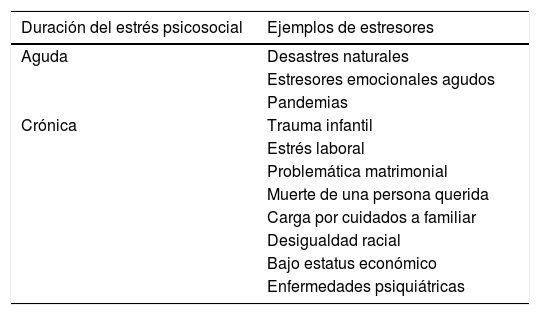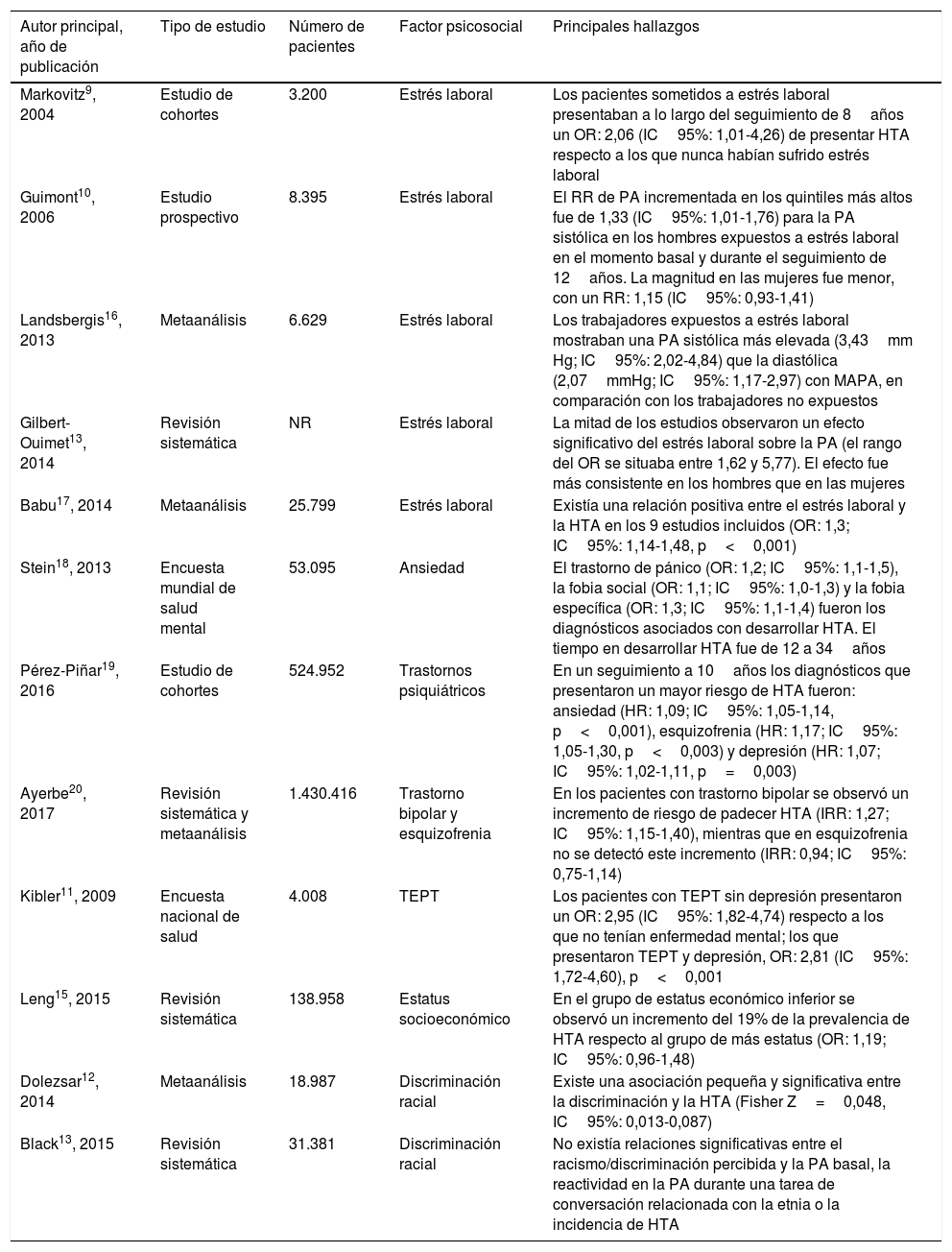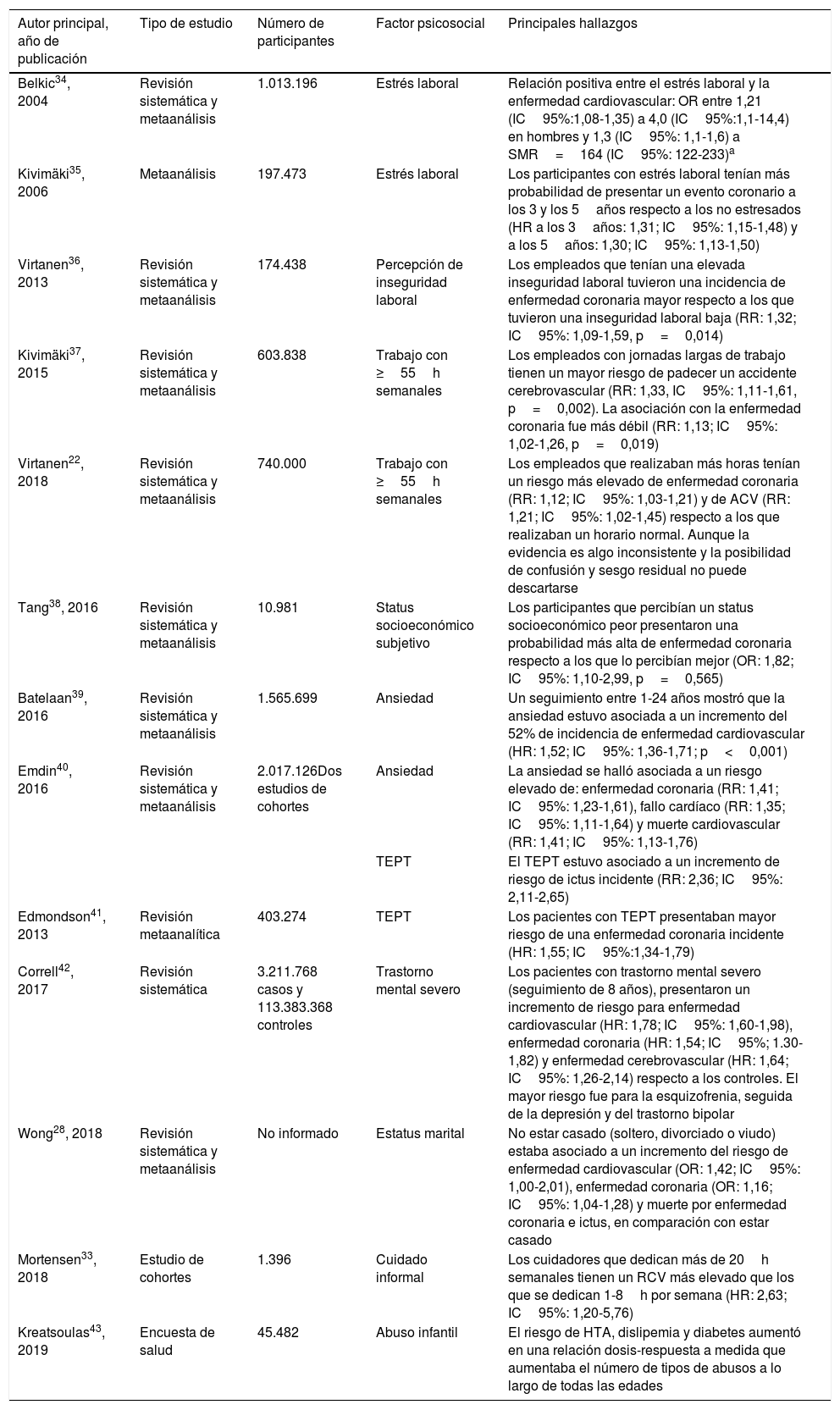El estrés psicosocial puede ser la consecuencia de una gran variedad de causas y circunstancias. La experiencia del estrés es frecuentemente única y vivenciada de forma muy personal, aunque con respuestas fisiológicas comunes. Previsiblemente sufrirá un incremento en el mundo moderno, sometido a vertiginosos cambios sociales, culturales y tecnológicos. En esta revisión se pretende determinar qué factores psicosociales repercuten en la hipertensión arterial (HTA) y en el riesgo cardiovascular (RCV). El estrés psicosocial aumenta más del doble el riesgo de HTA, y los factores más relacionados son el trastorno por estrés postraumático, la ansiedad y el estrés laboral. Los factores que más se relacionaron con un incremento del RCV fueron el cuidado informal, los estatus socioeconómicos inferiores, los trastornos mentales severos, el estatus marital y el trastorno por estrés postraumático. Las estrategias de prevención del estrés psicosocial individuales y colectivas pueden ser determinantes para disminuir la prevalencia de HTA y del RCV.
Psychosocial stress can be the result of a wide variety of causes and circumstances. The experience of stress is often unique and experienced in a very personal way, although with common physiological responses. Predictably, it will increase in the modern world, which is subject to vertiginous social, cultural and technological changes. This review aims to determine the psychosocial factors that affect arterial hypertension (HT) and cardiovascular risk (CVR). Psychosocial stress more than doubles the risk of HT, the most related factors being post-traumatic stress disorder, anxiety and work stress. The factors that were most related to an increase in CVR were informal care, lower socioeconomic status, severe mental disorders, marital status, and post-traumatic stress disorder. Individual and collective psychosocial stress prevention strategies can be decisive in decreasing the prevalence of HT and CVR.









